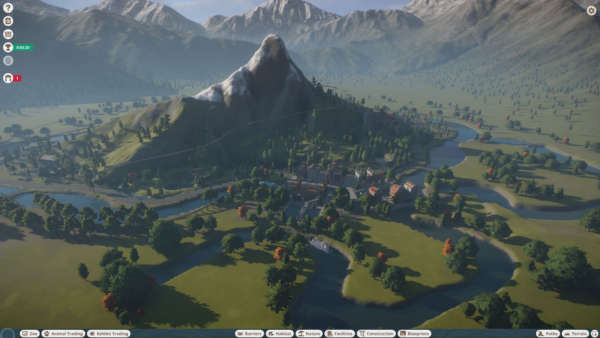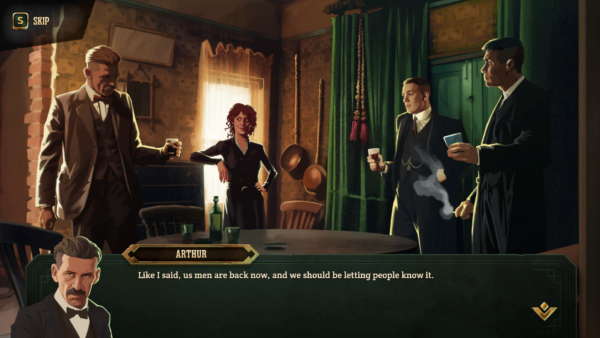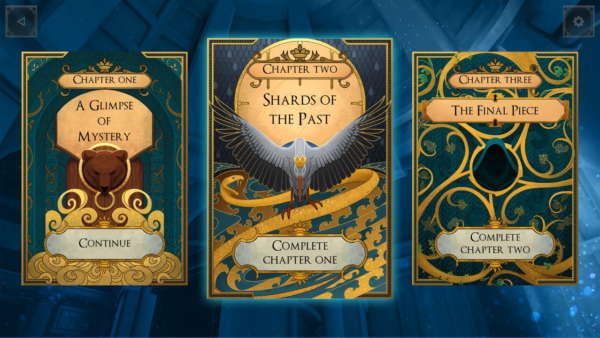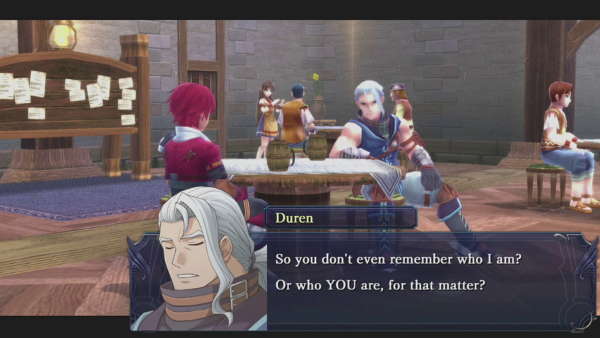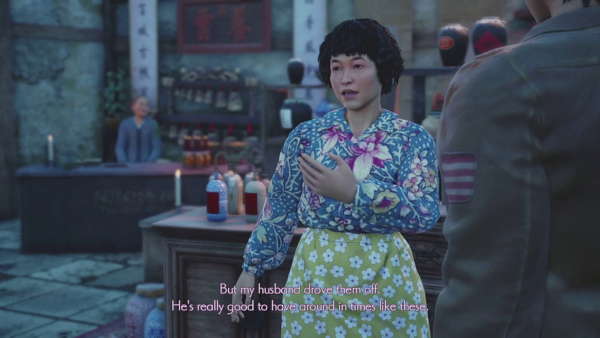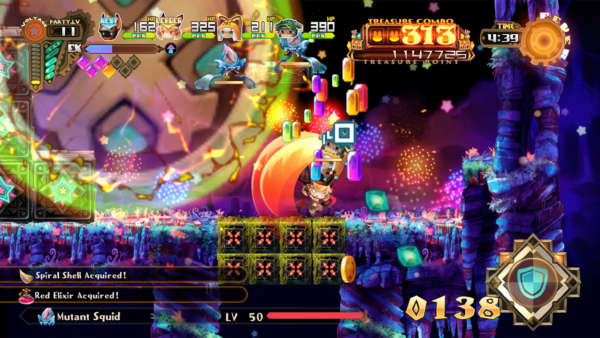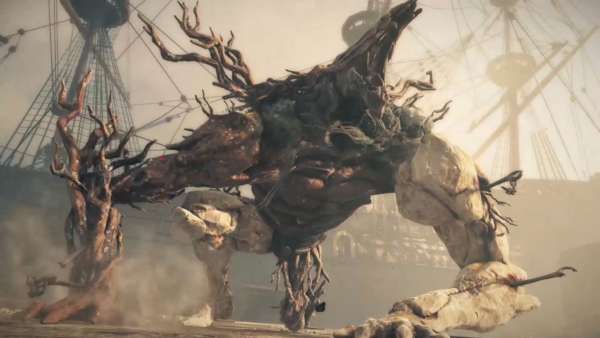L.A. Noire is hard to place in any one genre. It has shooting, it has driving, it has point and click style investigation and more. It’s a fresh experience for a critic to not be able to put a game into a specific genre because it gives so much variety which games seem to be lacking these days so it’s nice to see L.A. Noire break the mould. This review is based on the PC version of the game.
In L.A. Noire you step into the life of Cole Phelps, an ex-marine in the US Army who served in Japan during World War II. He’s a beat cop, he drives around in his black and white police car with his partner waiting for crimes to happen so he can stop them, until one night he helps out at a crime which propels him into the rank of detective. I’m not sure how the promotion system of the police works but I’m guess that just because you do something detective like once you don’t get changed into a new department, but it’s a nice touch and helps you feel more for the character as you improve his career over the game.
The crime scene investigation mechanic is done very well. You walk around the scene of a crime looking for clues, you can pick stuff up and inspect it and if it’s relevant to the case the game will automatically write it down in your note book. Not everything that is interactable with is going to be relevant and the more you play the game the more you as a player actually start to decide if something is worth looking at. This is a great feature of the game as you actually feel as if you yourself are learning real life investigatory skills.
In each case once you have a list of suspects and enough evidence you move on to conducting interviews, these are some of the best and worst parts of the game. Your character will automatically ask an opening question, something you’d expect like asking their whereabouts or try and get them to confess straight off. The suspect will give you a response and you have to decide whether they telling the truth, you doubt them, or they’re lying. Here is lies the first problem, what is the difference between a doubt and a lie? It took me well over 10 hours of game play to realise that the best strategy is to always open with them saying they’re lying, they’ll ask you for specific proof, if you don’t have any for that particular question you can back out and go with doubt, which the game will not punish you for and usually is the right answer.
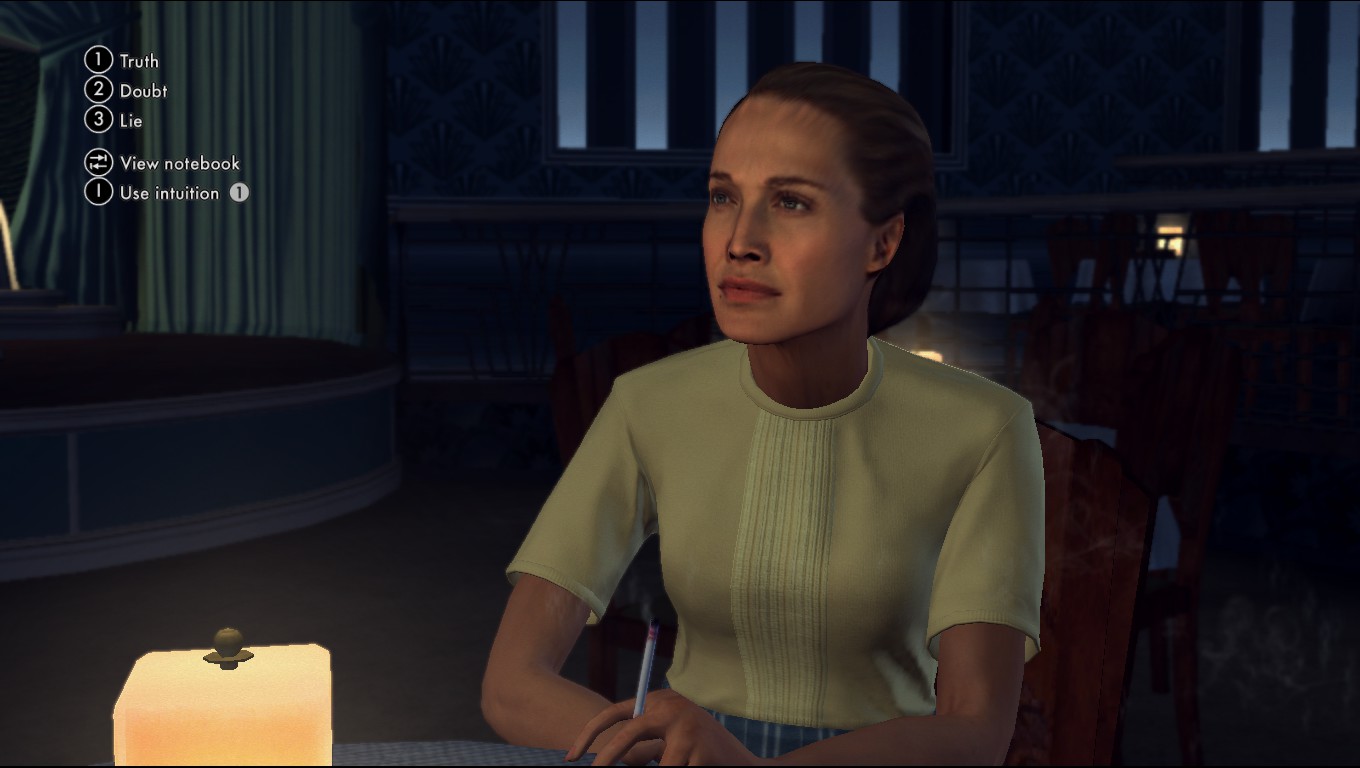
It’s always very easy to spot when the suspect isn’t telling the truth. The method of capturing the actors is called “motionscan” meaning the character in game look so like the original actors playing them that the game starts to turn into a game of “oh that’s thingy from what’s it called”. The only thing is trying to get an actor to pretend they’re lying without being obvious is hard, you can always tell when they’re not telling the truth because the on screen suspect will fidget almost uncontrollably and move their eyes around like they were having some sort of fit. This may be to balance out game play for people who can’t read voice inflections very well but it takes the realism out of the game when the character does the equivalent of waving a “I am lying” flag in your face.
Another problem with the interview mechanic is that you can pick the wrong answer and the suspect will reel off a speech to you while you sit there thinking you’ve got them as they’re spilling loads, then when you go to tick off the question it says you were wrong even though you just learnt loads of information. Even if you get none of the answers write in the interviews, you don’t fail the case there and then, which is good but strange at the same time. The game may be trying to give an air of realism but you have to remember it is a game; there should be penalties for screwing up. If you have an interview where you get 0/4 you should have to do it again and this only happens for a very select few interviews.
Some cases will end with you interviewing two suspects and you have to charge one of them and if you charge the wrong guy, you have a cut scene where you get yelled at by your skipper but then it says case complete. Unless you feel emotional scarring from a video game character yelling at you there is no punishment for jailing the wrong man.
The driving in the game feels strange but is very easy to get used to. As the Grand Theft Autos that have come before it from Rockstar they haven’t managed to quite nail down realistic driving. This is made even hard by the fact you’re driving cars from the 1940s, which aren’t known for their speed or handling. All this being said; the car chases are very fun, especially with your partner hanging out of the window shooting the tires of the runner. It is a good thing that the car chases are fun because almost every person you go to speak to for questioning will run and about 70% of those will get into a vehicle. That’s probably why it doesn’t take long to master the driving; you’re forced into it a lot.
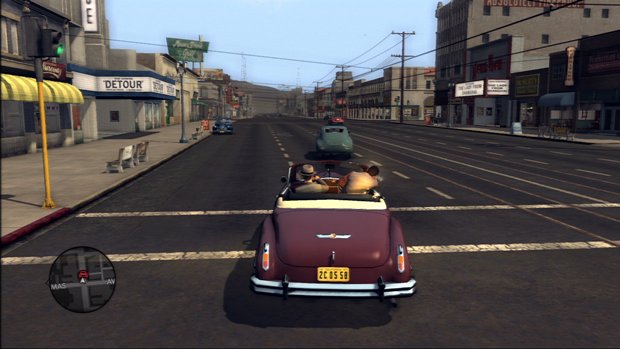
The suspects that don’t get into a vehicle will run away on foot and you will have to chase. Your partner will NEVER help you chase them down on foot, they will always go to get the car or call for backup or any other excuse to why you have to be the one to chase the suspect down. There are multiple ways for you to end chases; you can tackle the suspect to the ground, if your gun is out you can hold the aim over the suspect until a small circle around the cross hair fills up and you fire a warning shot, you can chase them into your partner who will of course fetched the car or more often than you think you can get knocked out and end up having to fist fight them.
The fist-fighting mechanic is simple and fun. You hold right mouse to be in fight mode, you can dodge and you can punch. Every so often you can use a finishing punch or a grapple attack which will finish the fight there and then. As long as you dodge and punch at the right times, you are never likely to lose a fist-fight.
The shooting in L.A. Noire feels surprisingly satisfying for a 3rd person game which is not designed as a shooter. You get a small selection of weapons that would have been available to the police force back in 1945 and they feel very easy and satisfying to shoot. Generally your partner couldn’t hit a truck with a machine gun so you have to take out every bad guy, but it feels good to do.
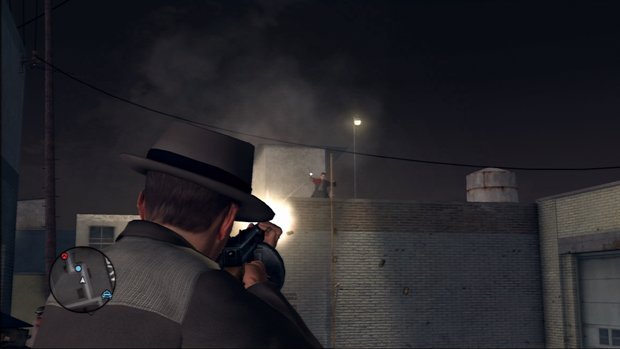
The game’s ‘levels’ are split into cases; each new case has a new name much like an old time crime drama. This is great as the levels stand on their own two feet very well and when the over-arching story comes in it feels like watching a show and going “Oh that was that guy?!” which is a great feeling to have when playing a game.
The way the stories and cases all tie up in the end is a real treat to watch unravel and after playing the game for so long you really appreciate the effort put in to the story. You appreciate it more because this is a very, very long game. This game sets the bar for enjoyment, story, length and the amount of mechanics in one game. If more games focused on the story like this game does, we’d have a lot more games that are a treat to play rather than another sequel which is more like a DLC than a new game or story continuation.
The graphics on the game are great to almost brilliant. The game exceeds itself by using the motionscan for the characters, the technique really brings the characters to life and the similarity to the original actors is staggering. This game really set the bar for character modelling and animation and I hope Rockstar will continue to use this technique for their other games.
L.A. Noire has some problems, but are easily overlooked for how fun the game is. With great visuals on the characters and fun game mechanics that stay fresh because of how many different genres this game manages to cover you never find yourself getting bored. With free roam ability and DLC cases and the ability to try and get perfect scores on cases you’ve already completed the game just keep giving and I hope there is a sequel or a game with similar functions from Rockstar soon.
